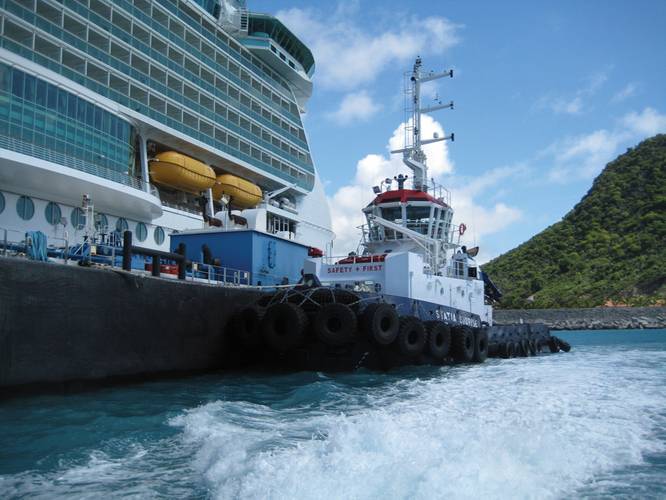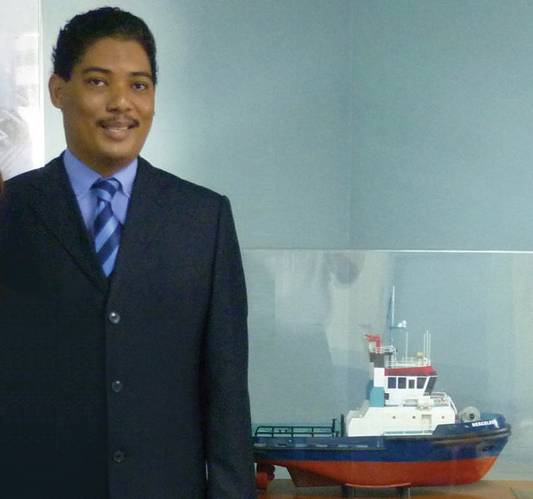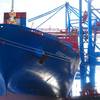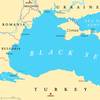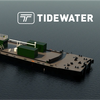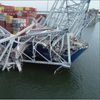The Trinidad & Tobago Maritime Sector
Shipbuilding, repair endorsed by government to diversify economy
The recent 2013-14 National Budget of Trinidad and Tobago firmly highlighted the government’s intention to endorse Shipbuilding and Repair as a means of diversifying our traditional oil and gas economy.
Trinidad & Tobago is in the middle of the world’s shipping lanes with an approximate 31,000 voyages per year passing within 25 nautical miles, positioning the location as an attractive choice for vessels traversing these principal routes. In addition, approximately 14,000 oceangoing vessels pass through the Panama Canal each year and this is expected to double after mid-2015, with the completion of the ongoing $5.25 billion expansion.
Two major dry docking project proposals, are being spearheaded by local shipbuilding and repair stakeholders, namely Etienne Mendez of Trinidad Dry Dock Company Limited (TDDCL) at Sea Lots and Chivon Thornhill of New World Shipyards Limited, at La Brea. In addition to the core dry docking facilities, it is the intention that TDDCL will maximize the potential of their Sea Lots project by embarking on the development of a number of on-site, downstream projects including a Marine and Industrial Park, and Residential and Commercial Centers, resulting in facilities that cater to their own internal requirements.
As mentioned in the recent National Budget, the Government of the Republic of Trinidad and Tobago (GoRTT) has engaged China Harbor Engineering Company Limited (CHEC) which is a world-renowned international contractor that is a subsidiary of China Communications Construction Company Limited (CCCC) for a feasibility study, revolving around the establishment of a new trans-shipment port with dry docking facilities to be included and also located in La Brea, south western Trinidad. This is to be financed by a small part of a Three billion United States dollar developmental aid package on offer (since 2011) by the Government of the People’s Republic of China to the Caribbean island region and is available on the basis of first come, first served. The dry docking facilities proposed by New World Shipyards Limited is a separate project to be financed mainly by private sector equity investors, but will be considered holistically, as part of the overall port development planning process.
Simultaneously, the extension of the highway to Point Fortin, through La Brea will definitely hasten and encourage the development of the south western peninsula, as a designated growth pole area. This is in keeping with an SRDC proposal to the current administration for interim use of a part of the newly built, 300 meter long former ALUTRINT Smelter dock and underutilized warehousing, located at Brighton Port, La Brea immediately adjacent to where offshore oil and gas steel platforms are currently being fabricated. This location is situated away from Chaguaramas which is located in the North-western part of Trinidad, and has long been seriously constrained by one road access and egress already exceeding its maximum vehicle carrying capacity. The lack of available lands for new tenancy in the development of additional deepwater shore side operations is also a disadvantage.
On the August 29, 2013 a consultation on the Draft Strategic Plan for the Maritime Industry for the period 2013-2018 was held at The Courtyard Marriot, Invaders Bay, port of Port of Spain. This timely review of the existing Strategic Plan was completed by KPMG, a global advisory with offices in Trinidad and Tobago and hosted by the Ministry of Trade, Industry and Investment and the Maritime Industry Development Committee, now chaired by Mr. Ernest Ashley Taylor, President of the Point Lisas Industrial Port Development Corporation Limited.
Among the suggestions made at this consultation by the SRDC, is that urgent and serious dialogue be jointly undertaken with the Ministry of Energy and Energy Affairs, The Ministry of Finance and the Economy and the Ministry of Trade, Industry and Investments, with regard to the provision of competitive marine bunkering fuel cost (available to both local and international ships) which can be used as an incentive for more ships to not only utilize our bunkering services, but other supporting maritime services, including ship repairs, logistics, ship stores, etc. This will create a demand curve for these and other related services, thereby encouraging the rapid growth of our domestic maritime sector, which is highly labor intensive.
Trinidad and Tobago can quickly become an international magnet for competitive maritime services, in much the same way as both the Republic of Singapore and the Republic of Panama have achieved, by using their strategic geographic and competitive advantage to benefit their economies. The completion of the new Ultra Low Sulfer Diesel (ULSD) Unit being finalized by Samsung Engineering, as part of Petrotrin’s Clean Fuels Program in its continuing effort to improve the profitability of the Pointe-a-Pierre Gulf of Paria refinery will support this move, while meeting the stringent new diesel quality specifications required for the global shipping market.
Already, one global ship owner, Oldendorff Carriers GmbH & Co. KG with its headquarters located in Lübeck, Germany has established an offshore iron ore trans-shipment facility, since July 2012 to take advantage of our strategic geographic location between South America and their distant bulk commodity markets. The direct result is that Oldendorff Carriers Trinidad and Tobago Limited, an affiliate of Oldendorff Carriers GmbH & Co. KG has already become one of Petrotrin’s largest customers due to their six million tons per annum of iron ore operations being located nearby.
Oldendorff Carriers trans-shipment operations, located some six nautical miles off the westerly coast of Trinidad, in the Gulf of Paria, has also provided high paying continuous employment for some 100 nationals of Trinidad and Tobago and presently entails the movement of iron ore which is loaded onto Handymax vessels in the port of Santana in the Amazon River, Brazil, where the maximum draft of 11.50 meters on the river, limits the carrying capacity to approximately 45,000 tons of ore, per vessel. Upon completion of all trans-shipment cargo operations, fully laden Capesize vessels (180,000-200,000 metric tons) sail after only 6-8 days from their Gulf of Paria Free Zone area to arrive at their final destinations in offloading terminals located in the People’s Republic of China or the Arabian Gulf.
As was recently done by the Ministry of Trade, Industry and Investments, GoRTT for the Foreign Used Car industry, restrictions should also be removed for entry and expansion of industry players in the domestic maritime sector. Restrictive policies can negatively impact growth and expansion of the global maritime industry and can be seen in our local ship bunkering industry. For example, a case can be seen with Aegean Marine Petroleum Network Inc. (NYSE: ANW) which is an international marine fuel logistics company that markets and physically supplies refined marine fuel and lubricants to ships in port and at sea. Currently, Aegean has a global presence in 20 markets, including Trinidad and Tobago, Vancouver, Montreal, Mexico, Jamaica, West Africa, Gibraltar, the United Kingdom, Northern Europe, Piraeus, Patras, the United Arab Emirates, Singapore, Morocco, the Antwerp-Rotterdam-Amsterdam (ARA) region, Las Palmas, Tenerife, Cape Verde, Panama and Hong Kong.
Since the establishment of Aegean Bunkering Trinidad operations, offshore the North and East coasts since 2009, it has been actively seeking with very limited success to expand its permitted coverage area to also include the calm waters of the Gulf of Paria, which offers the benefits of one of the largest sheltered harbors in the world and is a drawing card for some of the 31,000 ship voyages per year, passing within 25 nautical miles. Some of these ocean going ships, collect their varied bulk commodity shipments of Cement, Methanol, Liquefied natural gas (LNG) , Urea and Steel rods from the several industrial ports scattered along the western coastline.
Compared to the Republic of Singapore, an island economy seven times geographically smaller in size than Trinidad and Tobago, the situation is different. In Singapore there are a total of 68 accredited bunker suppliers, 67 of which can supply all grades of marine fuel and 1 which is licensed to supply Marine Gas Oil (MGO) only.
With their huge global ship owner account base, Aegean Marine Petroleum Network Inc., is eagerly looking to expand their Trinidad and Tobago bunkering operations, pending a review and grant of an expansion to their existing Bunkering License, by the Ministry of Energy and Energy Affairs, GoRTT. This current situation can be compared with our Trinidad and Tobago National Petroleum Marketing Company Limited (NP) having a near monopoly for several decades for the exclusive supply of land based retail petroleum fuels and lubricants for the automotive sector. With the establishment of the United Independent Petroleum Marketing Company Limited (UNIPET) and the subsequent explosive expansion of their operations, including the supply of Compressed Natural Gas (CNG) fuels, I have yet to hear of one complaint…
The above update clearly demonstrates the determination of both the government and private sectors, in shaping our future economy away from the traditional oil and gas sectors. There is still room for growth in the maritime industry.
About the Author
Wilfred de Gannes – Chairman & CEO, Shipbuilding & Repair Development Company of Trinidad and Tobago Limited (SRDC) which is the commercial business entity of the T&T Shipbuilding & Repair Maritime Cluster. He is also the Editor of the Trinidad and Tobago Shipbuilder & Repair News (http://issuu.com/shipbuildingandrepair).
(As published in the November 2013 edition of Maritime Reporter & Engineering News - www.marinelink.com)





